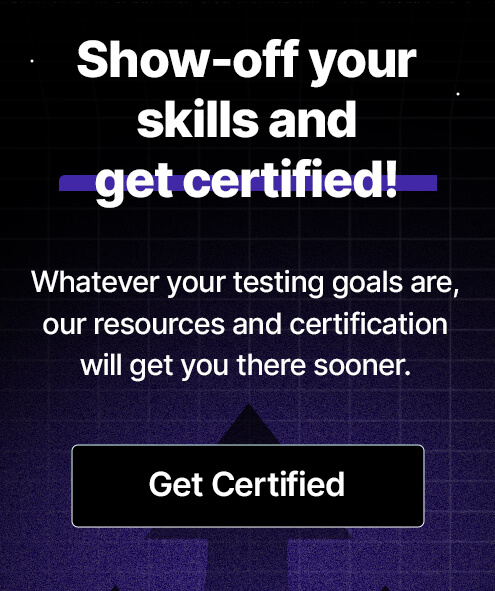Building A Successful Test Automation Team

A test automation team has never been more important in software development. Adhering to tight deadlines while ensuring high-quality software requires a dedicated test automation team to ease the testing process. But putting together such a team comes with its own challenges and needs.
How Do I Build an A-Team
The key to success is identifying and integrating varied positions that complement one another. Resulting in a balanced approach to addressing technical and strategic difficulties. Here's how to create your dream team who understands automation team roles & responsibilities:
A Test Automation Team Leader - Who Believes in the Vision:
Any automation testing team that wants to succeed needs a leader with a clear goal. This person knows how to automate tests technically and the business goals as a whole.
They are great at ensuring that the team's work fits the company's goals and that automation techniques positively affect product quality and delivery speed. A good leader motivates, inspires, and leads the team through technical and organizational problems. They also make smart choices that make the team more effective and efficient. And most importantly, understands the challenges in test automation and how to tackle them.
A Test Automation Architect - Who is Always In the Loop:
The test automation architect is the most important person on the team, and he or she needs to know a lot about tested methods and new tools. This person creates the test automation framework, selects the right tools, and ensures that the testing system can grow and is well taken care of. Because they know so much, the team can quickly adapt to changes in the world of software development by using new tools and methods to make tests more thorough and reliable.
An Automation Specialist - With a Strong Software Engineering Background:
The automation specialist serves as the team's backbone, creating solid, efficient, and dependable test scripts thanks to his or her superior software engineering skills. They offer the team a problem-solving approach, creating code replicating user interactions with the product to detect bugs and performance concerns. Their work is critical in ensuring that automated tests are effective, fast, and resource-efficient.
Challenges and How to Overcome Them
Building a test automation team entails overcoming various obstacles. Here's how to handle some of the more prevalent ones:
Challenge: Keeping Up with Evolving Technologies
Solution: Promote ongoing learning within the team. Set aside time and resources for training and attending workshops or conferences. This guarantees the team is current on the newest test automation technologies and best practices.
Challenge: Ensure test coverage and relevance
Solution: Set up a frequent review process for the test suite. This entails frequently evaluating the tests to ensure they cover new features and deprecating tests for obsolete functionalities. Collaboration between developers, testers, and the product team is critical for identifying areas that require attention.
Challenge: Balancing Speed and Quality
Solution: Improve test automation techniques by running the most critical tests early in the development cycle. Use parallel testing and prioritize tests with the highest value. This approach aids in the early detection of important faults while maintaining testing thoroughness.
Challenge: Integrating Test Automation into the CI/CD Pipeline
Solution: Collaborate with the DevOps team to smoothly add automated testing to the CI/CD process. This ensures that tests are automatically run with each build, allowing for early error discovery and smoother deployments.
Challenge: Tool selection and adaptation
Solution: Rather than committing to a single tool or framework, assess tools against current and future project requirements. Be willing to adopt new tools if they provide considerable benefits. Selecting tools with substantial community support and active development is also advantageous.
A test automation team can improve its efficacy by tackling these difficulties with focused techniques.
Conclusion
Creating a test automation team is a strategic investment in improving software development quality and efficiency. Organizations can overcome common difficulties by focusing on leadership, architectural vision, and specific automation capabilities. The path necessitates patience, strategic planning, and constant adaptation, but the benefits of software quality, team morale, and product success are well worth the effort.
Geosley Andrades
Director, Product Evangelist at ACCELQ
Geosley is a Test Automation Evangelist and Community builder at ACCELQ. Being passionate about continuous learning, Geosley helps ACCELQ with innovative solutions to transform test automation to be simpler, more reliable, and sustainable for the real world.
Discover More
 What is Azure DevOps and how is it used? Why automate Azure DevOps?
What is Azure DevOps and how is it used? Why automate Azure DevOps?
What is Azure DevOps and how is it used? Why automate Azure DevOps?
 Calculating and Optimizing Test Automation ROI
Calculating and Optimizing Test Automation ROI


